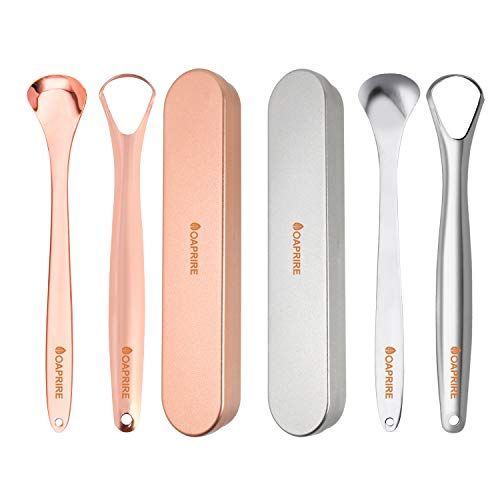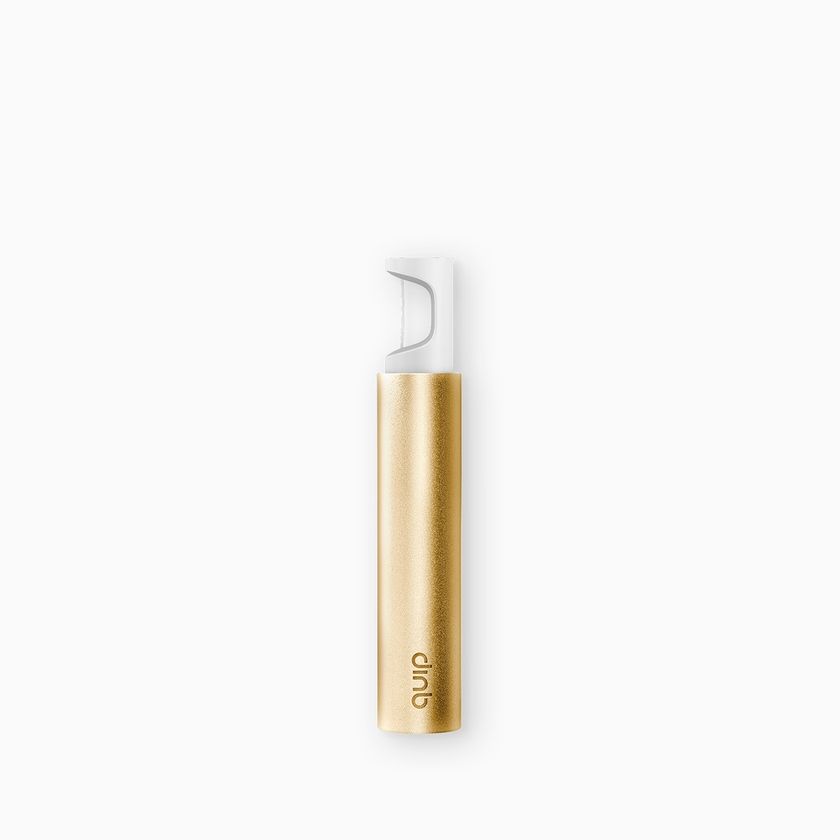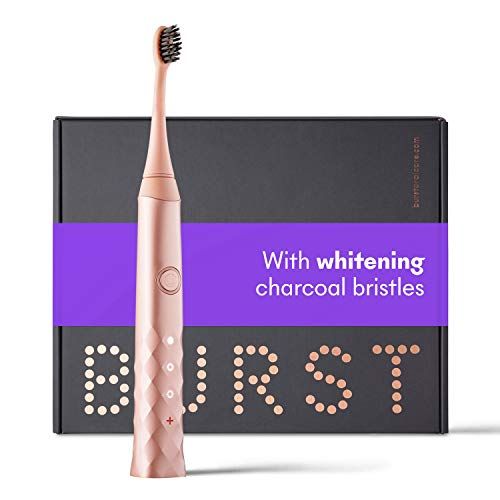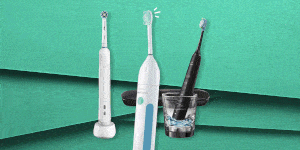12 Causes Of Bad Breath\u2014And How To Get Rid Of Each One

Bad breath is one of those nuisances that always seems to pop up at the most inconvenient times. And with most of us wearing masks right now, many people are picking up more on their bad breath issues. And the first step to getting rid of bad breath (a.k.a. halitosis)? Understanding the causes of bad breath.
“Halitosis affects millions of people in their everyday lives,” says Scott Young, DDS (you’re not alone!). “In fact, many say that having bad breath affects their social lives and overall self-confidence. If you find yourself constantly popping breath mints or chewing on mint-flavored gum, halitosis may be affecting you in the same way.”
Thankfully, there are simple treatments and solutions to this annoying problem that will have you feeling fresh in no time. But first, you must figure out the root cause of your bad breath. Here are 12 common causes of bad breath—and smart solutions.
1. You have poor oral hygiene.
“Poor oral hygiene leads to plaque buildup, and [it] can calcify over time, leading to calculus, or more commonly known as tartar,” says Michaela Tozzi, DMD, a Nevada-based dentist. “This perpetuates the cycle of buildup and can lead to gingivitis and periodontal disease.”
How to fix it: In general, “Brush, floss, and scrape your tongue in the morning, ideally after breakfast, coffee, et cetera,”says Dr. Tozzi. You can also try timing yourself brushing your teeth to see how long you’re really spending cleansing your mouth and tongue. Then, consider using an electric toothbrush, which often have timers to ensure that you’re scrubbing for at least two minutes, and that you’re reaching *all* surfaces of the teeth.
2. You have low saliva flow.
“Saliva acts as the mouth’s immune system,” says Dr. Tozzi, by helping keep bacteria levels low. So, if you have low saliva, it can allow bacteria to flourish, which leads to bad breath (amongst other issues like decay, gingivitis, and periodontal disease), she explains.
Not producing enough saliva is often caused by prescription medications, over-the-counter allergy medicines, as well as chemo/radiation treatments, Dr. Tozzi says.
How to get rid of it: Drink plenty of water, and use a prescription toothpaste with added calcium or fluoride and/or a dry mouth gel frequently, Dr. Tozzi recommends. You can also chew sugar-free gum containing xylitol and pop dry mouth tablets (XyliMelts) to stimulate saliva flow. In more extreme cases, you may want to ask your dentist about prescription pilocarpine, which also helps increase saliva flow.
3. You eat an acidic diet.
“An acidic diet can cause acid reflux, which is a main cause of bad breath,” notes Dr. Tozzi. Symptoms of acid reflux include heartburn, burping, nausea, and having a bitter taste in the mouth (among others).
How to get rid of it: If you deal with acid reflux and also notice bad breath, it’s worth talking to your physician about prescription antacid medicine to minimize the regurgitation of acid into the mouth, says Dr. Tozzi. You may also want to keep a food log to identify acidic foods that may be causing or worsening reflux and make dietary tweaks accordingly with the help of a professional.
4. You aren’t consistent with professional dental care.
You know, you know: You need to actually get to the dentist regularly to keep your mouth healthy. But also, doing so keeps bad breath at bay.
How to get rid of it: Get a professional cleaning every three to six months to help ensure that your gums and teeth are healthy, with no decay or signs of periodontal disease. Noted.
5. You eat pungent foods.
Can’t stand your breath after a garlic-filled meal? Makes sense! Eating intense, smelly foods is the obvious cause of bad breath. “Some foods naturally have an odor, such as onions, garlic, coffee and spices,” says Karyn Kahn, DDS, a dentist with the Cleveland Clinic.
How to get rid of it: Sounds obvious, but you should brush after meals to help do away with food particles that can cause probs (and stinky breath) in the hours to come. “Food entrapment can perpetuate the bad breath from these foods,” says Dr. Kahn. “Brushing, flossing, and brushing your tongue may help reduce these naturally occurring odors after eating.”
6. You eat a diet high in sugar.
When you go overboard on the sugary treats and foods, you’re giving bacteria in your mouth the ability to thrive. “Bacteria feeds off of sugar, like from candy and soda,” says Dr. Tozzi. “And when there’s a surplus of bacteria overgrowth, it can lead to bad breath.”
How to get rid of it: Lay off the sweets and soda if you can. Or, “Switch to sugar-free candy and diet soda if you can’t kick either habit,” says Dr. Tozzi. When you have sugar, it’s also wise to swish with water or brush afterward “to minimize the concentration of sugar in the mouth and on the teeth or brush afterwards,” she adds.
7. You’re on the keto diet.

“Followers of the ketogenic diet can find themselves suffering from what’s known as ‘keto breath,’ which is caused by the increased level of acetones in their body,” says Young.
How to get rid of it: Drink plenty of water and try sugar-free gum or mints with xylitol.
8. You have cavities or an infection.
Cavities and dental infections are generally caused by bacteria overgrowth in your mouth, explains Sophya Morghem, DMD. And, “That bacteria secrets byproducts—a common culprit being sulfur—that cause malodor,” Morghem says. Eek.
How to get rid of it: “See your dentist for regular checkups, at least twice a year,” says Morghem. And, no, cavities don’t go away on their own.
9. You have dry mouth.
“Xerostomia, or dry mouth, causes a decrease in saliva production and keeping your mouth moist with saliva is vital in keeping bad breath at bay,” says Young. “Saliva is necessary in washing away bacteria from your mouth.”
How to get rid of it: Drinking lots of water and staying hydrated is essential when it comes to preventing dry mouth, says Young. “Over-the-counter products that contain xylitol can help with bouts of dry mouth,” he adds. “For chronic dry mouth, your dentist or health care provider may prescribe an oral medication that can help stimulate the flow of your saliva.”
10. You have old dental work.
Having dental work that’s overdue for an update or poor-quality restorations can leave your breath smelling not so fresh. “Old fillings can wear out, letting harmful bacteria seep into the tooth, causing infection,” says Young. “Similarly, old crowns can crack, leaving openings for bacteria to creep in and cause cavities and infection in the underlying tooth.”
Low-quality restorations, such as porcelain-fused to metal crowns, can oxidize over time, breaking down from bacteria and acids, causing bad odors as well, Young adds.
How to get rid of it: “Make sure your dentist uses high-quality materials and state-of-the-art techniques in placing your restorations to ensure they don’t fail leading to bad breath,” says Young. And if you have, say, a crown or filling that needs to be replaced, don’t wait on it.
11. You’re not flossing.

“Without removing the plaque between the teeth and in the gum pocket, you are allowing bacteria to grow,” says Morghem. “Just like the dirty dishes you forgot to clean before you went to bed, by the morning there will be a smell. This is the bacteria that is growing, releasing sulfur.”
How to get rid of it: “Flossing before bed is a necessary part of your nighttime routine,” says Dr. Morghem. Don’t skip it!
12. You have an underlying medical issue.
“Chronic tonsillitis, nasal and sinus infections, as well as other disorder such as gastric reflux can result in bad breath,” Kahn says. “Small stones in the tonsils, post-nasal drip, and chronic sinusitis are sources of bacterial that can result in bad breath.”
How to get rid of it: If you can’t seem to get of bad breath with any of the fixes above, it’s time to talk to your doctor to rule out an underlying condition.
Permanent Fixes For Bad Breath
If you struggle with bad breath, taking the following steps can help you get it under control.

The bottom line: There are many reasons for bad breath, most of which have simple lifestyle solves. But always talk to your dentist or doctor if you can’t get to the bottom of your halitosis issue.
Source: Read Full Article
